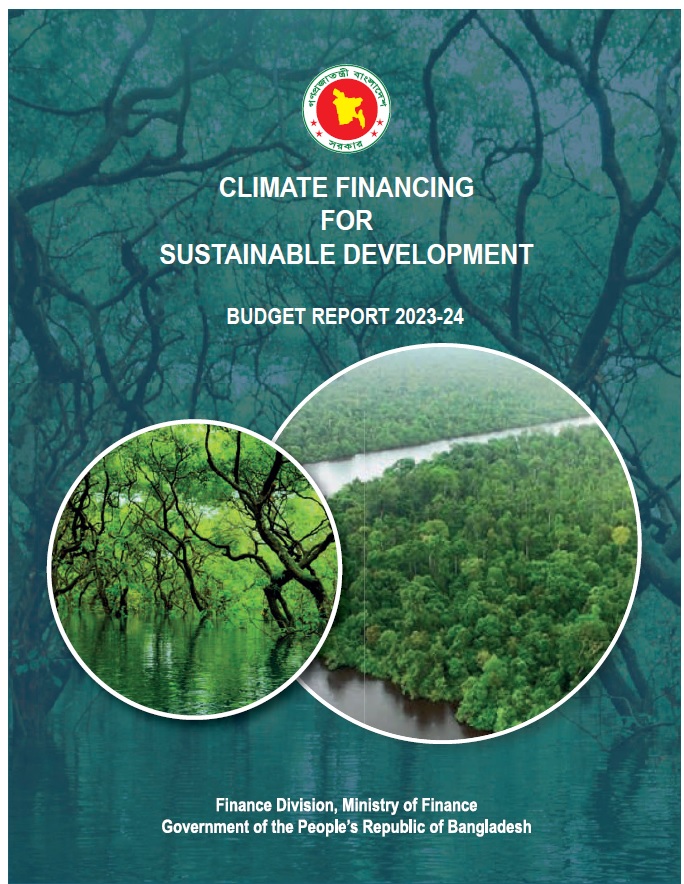🌿 COP 30 - Building a Greener Tomorrow
The 30th UN Climate Change Conference (COP 30) is taking place in Belém, Brazil. Stay informed about global climate actions, negotiations, and live sessions from 10 – 21 November 2025.
Get Updates
Climate Financing for Sustainable Development

Files
Date
January, 2024Author(s)
- Finance Division, Ministry of Finance, Government of the People’s Republic of Bangladesh.
Abstract
Bangladesh, being one of the most climate-vulnerable countries, must take swift actions to address climate change and reduce its severity. It should also increase investments in its infrastructure and population and adopt measures to ensure an economy with climate resilience and sustainable development. Although Bangladesh contributes minimally to global greenhouse gas emissions, it is severely affected by environmental and climate-relevant impacts, which hinder its development efforts and pose risks to public health. To tackle the challenges of climate change, Bangladesh has adopted a range of short-, medium- and long-term national policies and laws, including the Climate Fiscal Framework (CFF), Bangladesh Climate Change Strategy and Action Plan (BCCSAP), National Adaptation Plan (2023-2050), and the Bangladesh Delta Plan 2100. Additionally, the Sustainable Development Goals (SDGs) have been integrated into the development agenda. BCCSAP and CFF provide guidance for allocation of resources in line with climate change objectives. BCCSAP encompasses six categories and budgetary allocations and expenditure data is generated based on these themes through the iBAS++ system for these thematic areas.
Citation
Finance Division, 2023. Climate Financing for Sustainable Development Budget Report 2023-24, Ministry of Finance, Government of the People’s Republic of Bangladesh. 162p.
Publisher
Finance Division, Ministry of Finance, Government of the People’s Republic of Bangladesh.
Rights Holder
Government of the People’s Republic of Bangladesh
URI
https://knowledgehub.pksf.org.bd/collections/Q1luNzBjNmV4UGE2TTZsbHczNU1YQT09
